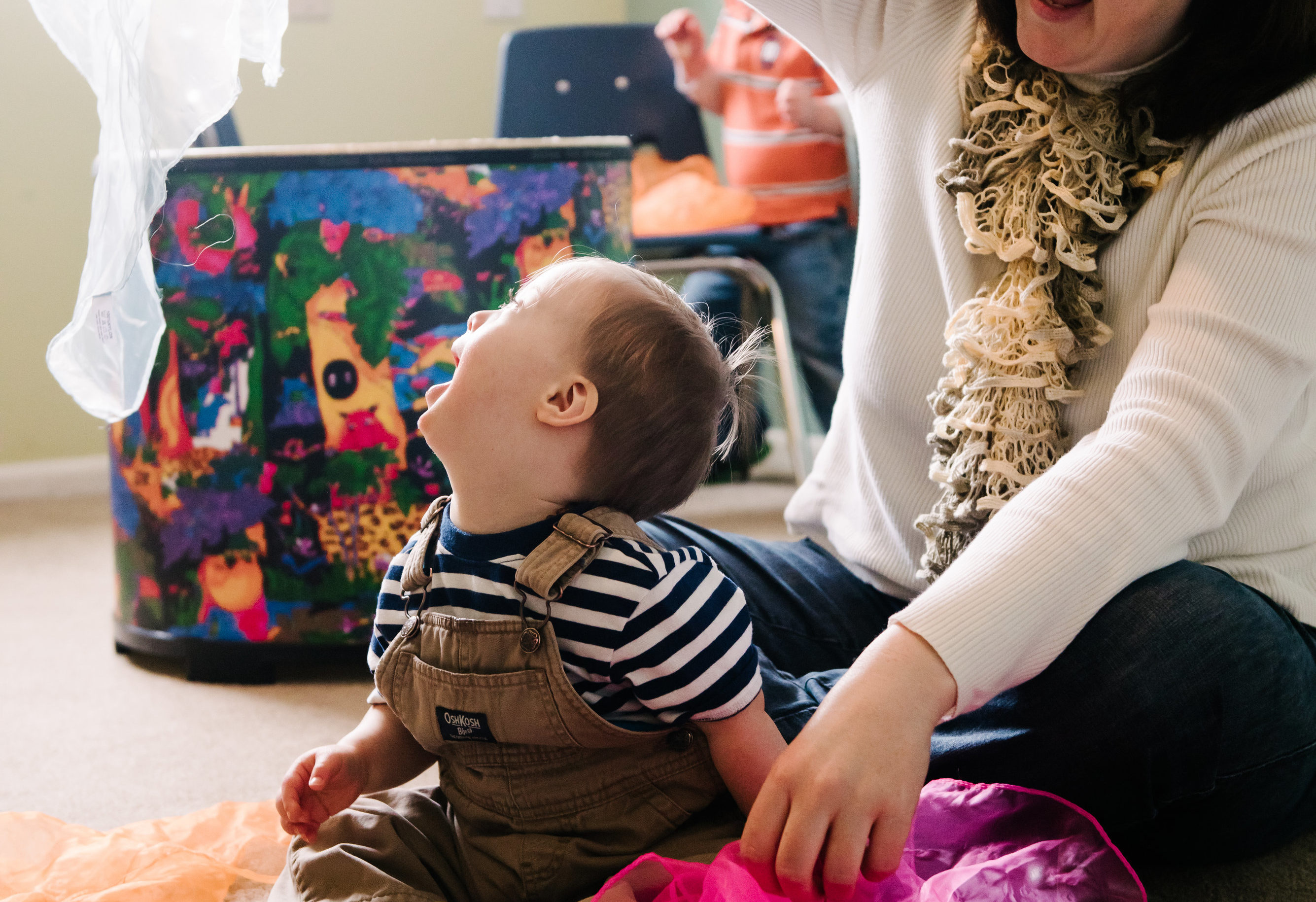What Goals Do Music Therapists Address in Early Intervention?
Goals in music therapy in Early Intervention generally focus on speech and language, social skills, motor development and coordination, and/or cognitive development (following directions, attention span and focus).
The thing that confuses people at times about goals in music therapy is that they do not specify music in the goal. This is because music is our method, not the end result. It’s an incredibly powerful tool that we use that helps promote development for children in critical areas, including communication, social skills, and cognitive and motor development.
Yes, music is directly connected to development, but in music therapy being able to play or sing isn’t the goal. But singing or playing will help the child reach his or her goals. Music makes everything in development easier and more engaging because it is engrained in us as human beings to need music and to respond to it. It follows that music is a powerful tool to help children with developmental delays to overcome challenges and get where they want to be.
So what do music therapy goals look like in early intervention?
They look exactly like the goals you currently have for the kids on your caseload. Music therapy doesn’t change anything about the treatment plan except for the method used to achieve the goal (and in many cases, the efficiency in which the goal is achieved!).
To give you a picture of what music therapy might address, here are a few of the goals we’ve had in early intervention settings using music therapy. They are divided into the domains listed above.
Note that this list of goals is not exhaustive or exclusive, as music therapy can address an even wider range of goals. This is simply a sample from what we have done.
SPEECH & LANGUAGE
- Child will vocalize during familiar songs 8/10x to increase language skills.
- Child will vocalize 5x during the session
- Child will imitate and/or spontaneously use words to label items in his environment and make his wants and needs known
- Child will follow the group leader by imitating sounds, gestures, vocalizations
- Child will verbalize 5x during the class to build expressive vocabulary and express wants and needs
- Child will imitate peers for motor and language improvement to better communicate and get needs met.
SOCIAL SKILLS
- Child will imitate actions of peers in a group 3/4x to increase verbal and motor skills
- Child will interact with peers ¾ opportunities through trading instruments, eye contact, imitation, or verbal interaction
- Child will imitate peer motions and vocalizations 5x during music class to increase sound production during social interaction
- Child will socially interact 2-3 times during class to improve his peer interaction.
COGNITION & ATTENTION
- Child will be able to handle a structured environment by keeping his attention span and following directions 50% of the time in class.
- Child will expand her anticipatory communication by showing visible anticipation of an event
- Child will attend to an activity in a group for 2-3 minutes
- Child will follow 1 directions in a group setting
PHYSICAL & MOTOR NEEDS
- Child will develop upper extremity and trunk strength
- Child will improve motor coordination by reaching for, grasping, and manipulating objects appropriately
- Child will develop coordination with gross motor movements (jumping, marching, spinning)
- Child will increase hand strength by grasping objects for 10 seconds at a time
As mentioned above, the difference when you provide music therapy is not in the types of goals you address, but simply in how you address them. In many cases, children respond better in music therapy than they do in other settings, and you can therefore improve the rate at which your children progress in early intervention by including music therapy.
Interested in learning more? We can provide in-services to show the ins and outs of music therapy and how it can meet your unique needs as an Early Intervention program. We look forward to working with you!

